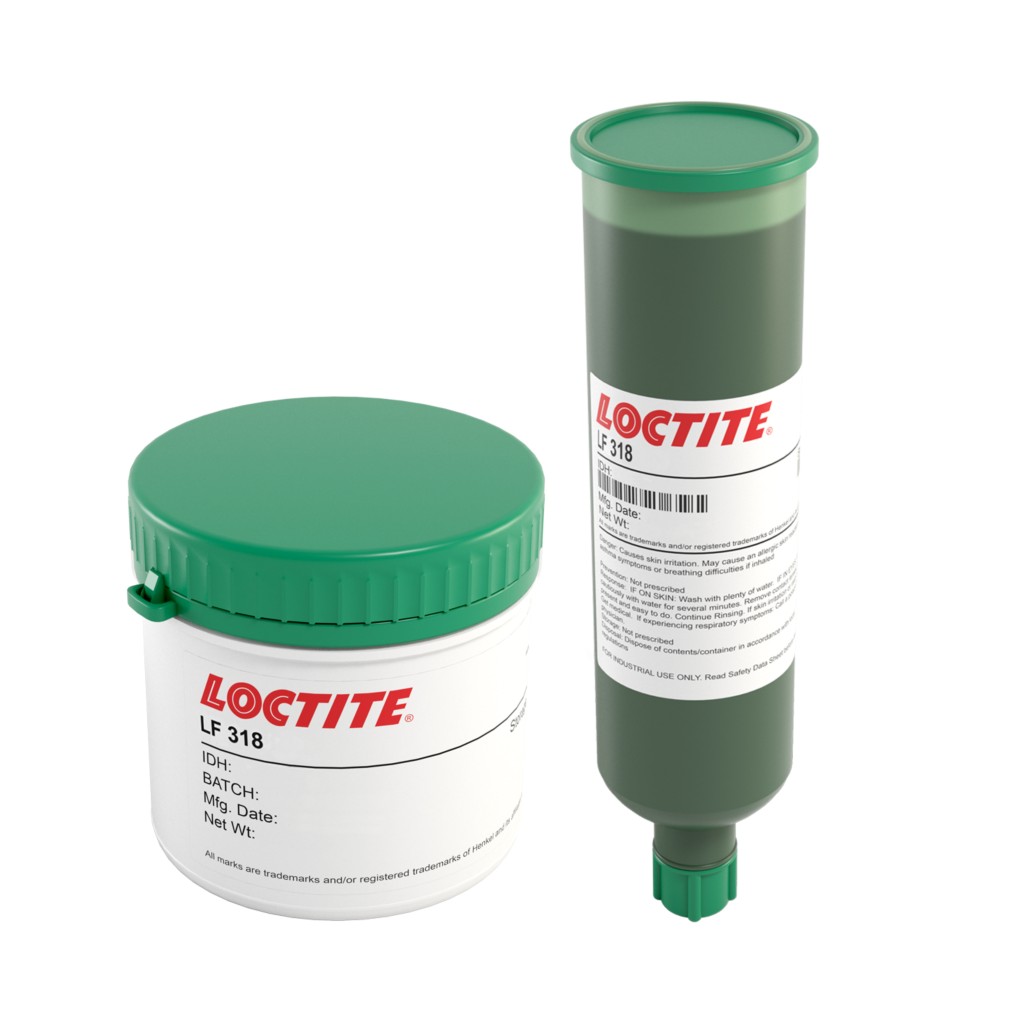LOCTITE LF 318
- 90iSC Alloy
- Automotive reliability qualified
- Stencil Printable
Product Description
LOCTITE LF 318 solder paste is a halide-free, no clean, pin testable Pb-free solder paste, formulated to have excellent humidity resistance and a broad process window, both for reflow and printing. This product has high tack force to resist component movement during high speed placement and long printer abandon times.
LOCTITE LF 318 shows excellent solderability over a wide range of reflow profiles in both air and nitrogen across a wide range of surface finishes including Ni/Au, Immersion Sn, Immersion Ag, OSP copper. It leaves colorless and soft, non stick residues for easy post reflow inspection and in-circuit testing.
LOCTITE LF 318 should not be used to solder to component or PCB finishes containing lead (Pb), as a low melting eutectic (at 98°C) will form. It is suitable for fine pitch, high speed printing and pneumatic dispensing.
LOCTITE LF 318 contains a modified Pb-free solder alloy developed in a co-operative project for improved reliability as compared with standard SAC alloys, with a standard flux medium , LF 318.
Technical Specifications
| General Properties | |||||||||||
| Alloy Type Alloy Type A metallic element type | 90iSC | ||||||||||
| |||||||||||
| |||||||||||
| Physical Properties | |||||||||||
| Thixotropic index Thixotropic index Thixotropic Index is a ratio of a material s viscosity at two different speeds in Ambient temperature, generally different by a factor of ten. A thixotropic material s viscosity will decrease as agitation or pressure is increased. It indicates the capability of a material to hold its shape. Mayonnaise is a great example of this. It holds its shape very well, but when a shear stress is applied, the material easily spreads. It helps in choosing a material in accordance to the application, dispense method and viscosity of a material. | 0.5 | ||||||||||
| Viscosity Viscosity Viscosity is a measurement of a fluid’s resistance to flow. Viscosity is commonly measured in centiPoise (cP). One cP is defined as the viscosity of water and all other viscosities are derived from this base. MPa is another common unit with a 1:1 conversion to cP. A product like honey would have a much higher viscosity -around 10,000 cPs- compared to water. As a result, honey would flow much slower out of a tipped glass than water would. The viscosity of a material can be decreased with an increase in temperature in order to better suit an application | 650,000 mPa.s | ||||||||||
| Thermal Properties | |||||||||||
| |||||||||||



